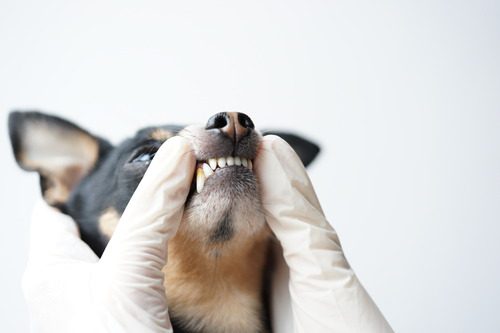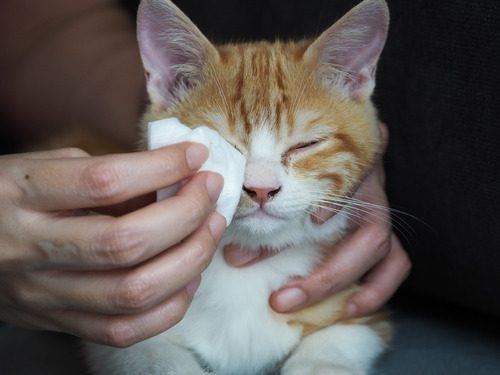Dog Tooth Abscess Burst: What to Do
You’re petting your dog and notice swelling near their muzzle, then suddenly, it bursts and starts to drain. Understandably, this can be alarming. A burst tooth abscess in dogs isn’t just messy. It’s a sign of a deeper issue that needs attention right away. Dental infections can develop quickly and often go unnoticed until something dramatic happens. If your dog has a ruptured abscess, you’re likely wondering what caused it, what to expect next, and how to help them feel better. This blog breaks down everything you need to know about a dog tooth abscess burst and explains why it’s so important to take action. If your dog has a burst abscess, call Cornerstone Veterinary Hospital of Clifton Park at (518) 383-6254 for an appointment.

What Happens When a Dog Tooth Abscess Bursts?
A tooth abscess in dogs typically starts as an infection below the gumline, often due to dental decay, trauma, or a fractured tooth. As bacteria multiply, the infection creates pressure that forms a pocket of pus beneath or around the tooth root. If this buildup isn’t addressed in time, it may rupture through the gums or surrounding tissue. A burst abscess might relieve some pressure temporarily, but it doesn’t resolve the underlying infection.
Visible Signs of a Burst Tooth Abscess
When a dog tooth abscess bursts, pet owners often notice:
- Swelling on the side of the face or under the eye
- A sudden open sore or lesion on the muzzle
- Pus or bloody discharge
- Foul odor from the mouth
- Reluctance to eat or chew
- Increased drooling or pawing at the mouth
In some cases, the swelling reduces after the abscess drains, but this doesn’t mean the problem has resolved. The infection may still be active and can spread deeper into surrounding tissues or even to the bloodstream.
Why a Dog Tooth Abscess Burst Requires Veterinary Attention
While it might seem like the worst is over once the abscess has drained, that’s not the case. The rupture is a sign that the infection has progressed and now needs immediate care. Left untreated, a dental infection can cause widespread inflammation and damage to surrounding structures like the jawbone, sinus cavities, or even internal organs if bacteria enter the bloodstream. Veterinary intervention is the only way to fully treat the source of the infection. At Cornerstone Veterinary Hospital of Clifton Park, your dog will receive a thorough dental evaluation and a treatment plan tailored to their condition. This may include dental imaging, tooth extraction, or a deep cleaning under anesthesia.
What Causes a Dog Tooth Abscess to Burst?
To understand how a dog tooth abscess burst occurs, it’s helpful to look at the most common causes behind dental infections in dogs.
Tooth Fractures and Trauma
One of the leading causes of tooth abscesses in dogs is trauma to the tooth, especially the upper carnassial teeth. Chewing on hard objects like bones, antlers, or nylon toys can cause microfractures or full tooth breaks that allow bacteria to invade the pulp chamber. If left untreated, infection can settle deep inside the tooth, eventually leading to an abscess that may burst.
Periodontal Disease
Chronic gum disease can cause the gums to recede and expose the tooth roots, creating easy access points for bacteria. Dogs with advanced periodontal disease are more prone to developing tooth root abscesses, which can rupture through the gum or face.
Foreign Bodies
Occasionally, debris such as grass awns or splinters can get lodged between the tooth and gum, introducing bacteria and leading to localized infections. If not removed, this can evolve into an abscess that eventually bursts.
What to Do if You Suspect a Dog Tooth Abscess Burst
When a dog tooth abscess bursts, it creates an open pathway between the infection and the outside environment. You might see pus draining from the lesion or a noticeable hole on the face or in the mouth. While it may be tempting to clean the area at home or wait to see if it heals, doing so risks further infection.
Steps to Take Immediately
- Minimize Handling: Avoid squeezing or applying pressure to the swollen area.
- Call the Vet: Contact Cornerstone Veterinary Hospital of Clifton Park at (518) 383-6254 for an evaluation as soon as possible.
- Prevent Access: If your dog keeps pawing at the area or rubbing their face, use an e-collar to prevent further irritation.
- Monitor Eating and Drinking: Encourage hydration but don’t force your dog to eat if it’s painful. Soft food may be tolerated more easily until your appointment.
Delaying care can allow the infection to worsen. Prompt veterinary attention will address the infection and offer pain relief to help your dog feel better quickly.
How Veterinarians Treat a Burst Tooth Abscess in Dogs
Treatment for a burst dog tooth abscess will depend on the severity of the infection, the condition of the tooth, and the health of surrounding structures. At Cornerstone Veterinary Hospital of Clifton Park, the care process usually includes the following steps:
Dental Examination and Imaging
Your veterinarian will perform a thorough oral exam and may recommend dental X-rays to assess the extent of the infection. This helps determine whether the tooth can be saved or needs to be extracted.
Tooth Extraction or Root Canal
If the tooth is damaged or infected beyond repair, extraction is typically the best option. In some cases, a veterinary dentist may offer a root canal, although this is less common in general practice.
Antibiotic Therapy
To target any remaining bacteria, your veterinarian will prescribe antibiotics. These medications help control the infection while the body heals from the rupture.
Pain Management
Dental abscesses are painful. Your dog may receive anti-inflammatory medications and pain relief as part of the treatment plan.
Can You Prevent a Dog Tooth Abscess from Bursting?
While not all dental abscesses can be prevented, regular dental care significantly reduces the risk. Many tooth abscesses develop silently, so preventive care is key to catching problems early, before they reach the point of rupture.
- Routine Dental Exams: Scheduling regular dental checkups gives your veterinarian the opportunity to identify signs of decay, trauma, or infection before they escalate. These exams are often performed during your dog’s annual wellness visit or during professional dental cleanings.
- Professional Cleanings: A thorough cleaning under anesthesia removes plaque and tartar above and below the gumline, key contributors to periodontal disease and abscess formation.
- Home Dental Care: Brushing your dog’s teeth regularly and providing dental chews approved by the Veterinary Oral Health Council (VOHC) can help reduce plaque buildup and maintain oral health between visits.
If your dog’s tooth abscess burst or you notice swelling, oral pain, or discharge near the mouth or muzzle, call Cornerstone Veterinary Hospital of Clifton Park right away at (518) 383-6254. Dental infections can progress rapidly and are painful for your pet. Prompt attention helps prevent complications and promotes a faster recovery. By addressing the issue early and staying on top of your dog’s dental health, you can reduce the risk of future abscesses and help your dog stay happy, healthy, and pain-free.
Recent Posts
Benefits of Spaying or Neutering a Cat
Benefits of Spaying or Neutering a Cat Deciding to spay or neuter your cat is a responsible…
Why Does My Cat Get Eye Boogers Everyday?
Why Does My Cat Get Eye Boogers Everyday? Cats are known for their meticulous grooming habits, but…
Why Do Cats Like Christmas Trees?
Why Do Cats Like Christmas Trees? Christmas is a magical time of year filled with twinkling lights,…
About Us
Originally opened as Animal Care Hospital by Dr. Mark Johnston in 1989, the hospital became Cornerstone Veterinary Hospital in 2015 when it was purchased by Drs. Alan and Lisa Knott. The name 'Cornerstone' holds a special place in their hearts, representing not only their Christian faith but also their commitment to being the cornerstone of the community in which they practice. As a family-owned and operated practice, every pet is treated as part of the family, ensuring they receive the highest standard of care. The team at Cornerstone Veterinary Hospital is dedicated to building lasting relationships with clients and their beloved pets, striving to be the cornerstone of the community in which they practice.



